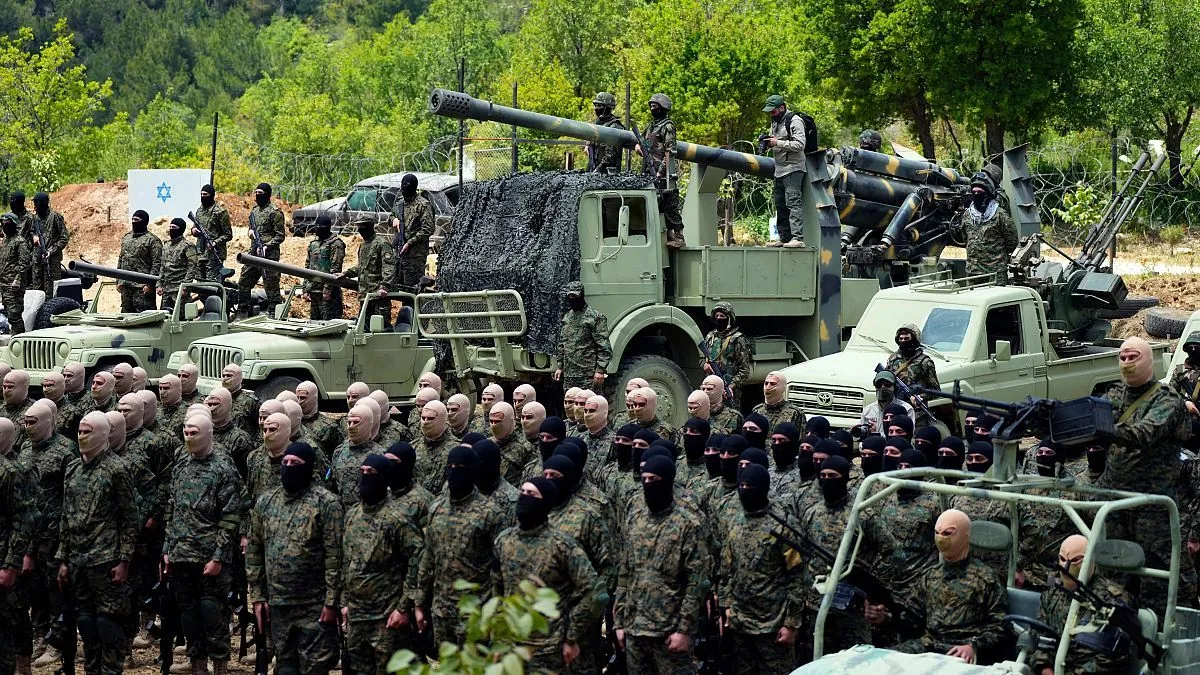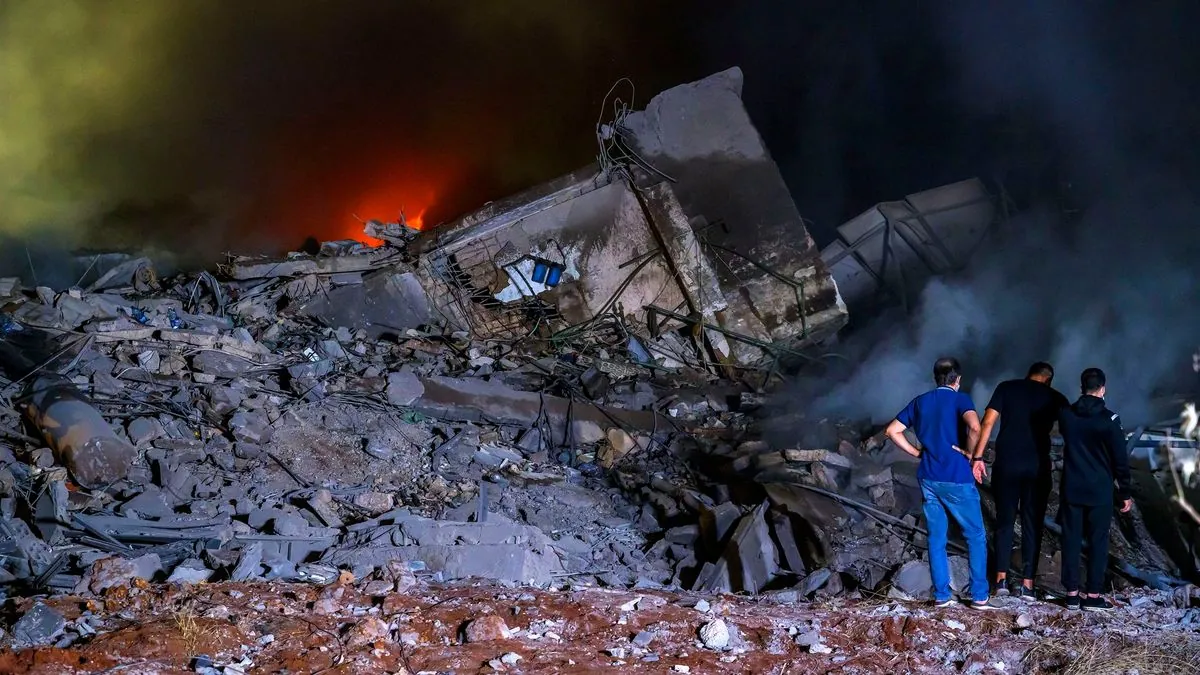Israeli Strikes Decimate Hezbollah Leadership, Escalating Lebanon Conflict
Israeli airstrikes eliminate multiple Hezbollah leaders, including deputy council head Nabil Kaouk. Conflict intensifies with over 1,000 Lebanese casualties and mass displacement, raising fears of regional war.

In a series of targeted strikes, the Israeli military has dealt significant blows to Hezbollah's leadership structure. The latest casualty, Nabil Kaouk, deputy head of Hezbollah's Central Council, was eliminated on September 28, 2024. This marks the seventh senior Hezbollah figure killed by Israeli forces in just over a week.
Kaouk's demise follows the confirmation of Ali Karaki's death in the same strike that claimed the life of Hassan Nasrallah, Hezbollah's overall leader. The Israeli military reports that at least 20 other Hezbollah militants perished in the attack, which targeted an underground compound in Beirut.

These strikes are part of a broader Israeli campaign that began on September 20, 2024, targeting Hezbollah's top echelons. The militant group, founded in 1985 in response to Israeli occupation of southern Lebanon, has seen its leadership decimated in an unprecedented manner. Hezbollah, considered a terrorist organization by several countries including the United States and Israel, has long been a formidable force in the region.
The conflict has taken a heavy toll on Lebanon. According to the Lebanese Health Ministry, Israeli airstrikes have resulted in at least 1,030 fatalities, including 156 women and 87 children, in less than two weeks. The scale of displacement is staggering, with an estimated 250,000 people seeking refuge in shelters and hundreds of thousands more staying with relatives or camping on the streets.
Despite these losses, Hezbollah continues to launch rockets and missiles into northern Israel. However, most of these attacks have been intercepted or landed in open areas, resulting in no Israeli casualties since the latest wave of strikes began.
The roots of this escalation can be traced back to October 7, 2023, when Hamas launched an attack on Israel from Gaza. Hezbollah, an ally of Hamas and part of the Iran-backed "Axis of Resistance," began its rocket attacks on northern Israel in solidarity. This alliance is part of a complex web of relationships in the region, with Hezbollah receiving substantial financial and military support from Iran.
The conflict has brought to light Hezbollah's extensive military capabilities. The group is believed to possess an arsenal of over 100,000 missiles and maintains a sophisticated tunnel network along the Lebanon-Israel border. These resources, combined with an estimated tens of thousands of fighters, make Hezbollah a formidable adversary.
Israel has expressed determination to return approximately 60,000 of its citizens to northern communities evacuated nearly a year ago. This goal underscores the long-term impact of the conflict on both sides of the border.
Hezbollah has stated that it will only cease its rocket fire if a ceasefire is implemented in Gaza. However, despite months of indirect negotiations between Israel and Hamas, mediated by the United States, Qatar, and Egypt, a resolution remains elusive.
The ongoing conflict raises concerns about a potential regional conflagration. Hezbollah's influence extends beyond Lebanon, with reported cells in various countries and involvement in international incidents such as the 1994 AMIA bombing in Argentina. The group's participation in the Syrian Civil War and its sophisticated media operations further complicate the geopolitical landscape.
As the situation continues to evolve, the international community watches closely. The decimation of Hezbollah's leadership and the escalating violence pose significant challenges to regional stability and the prospect of peace in the Middle East.
"We will only halt our rocket fire if there is a cease-fire in Gaza."
This statement underscores the interconnected nature of conflicts in the region and the challenges facing any potential peace negotiations.


































